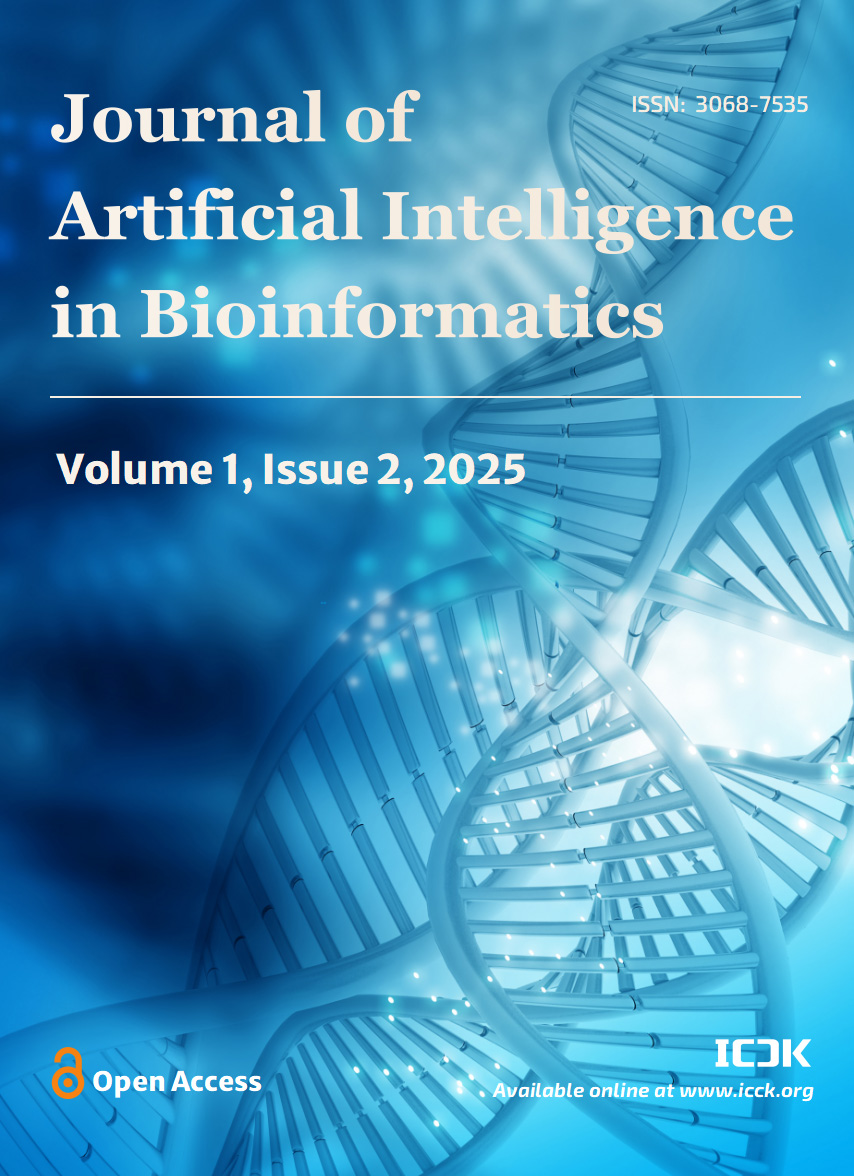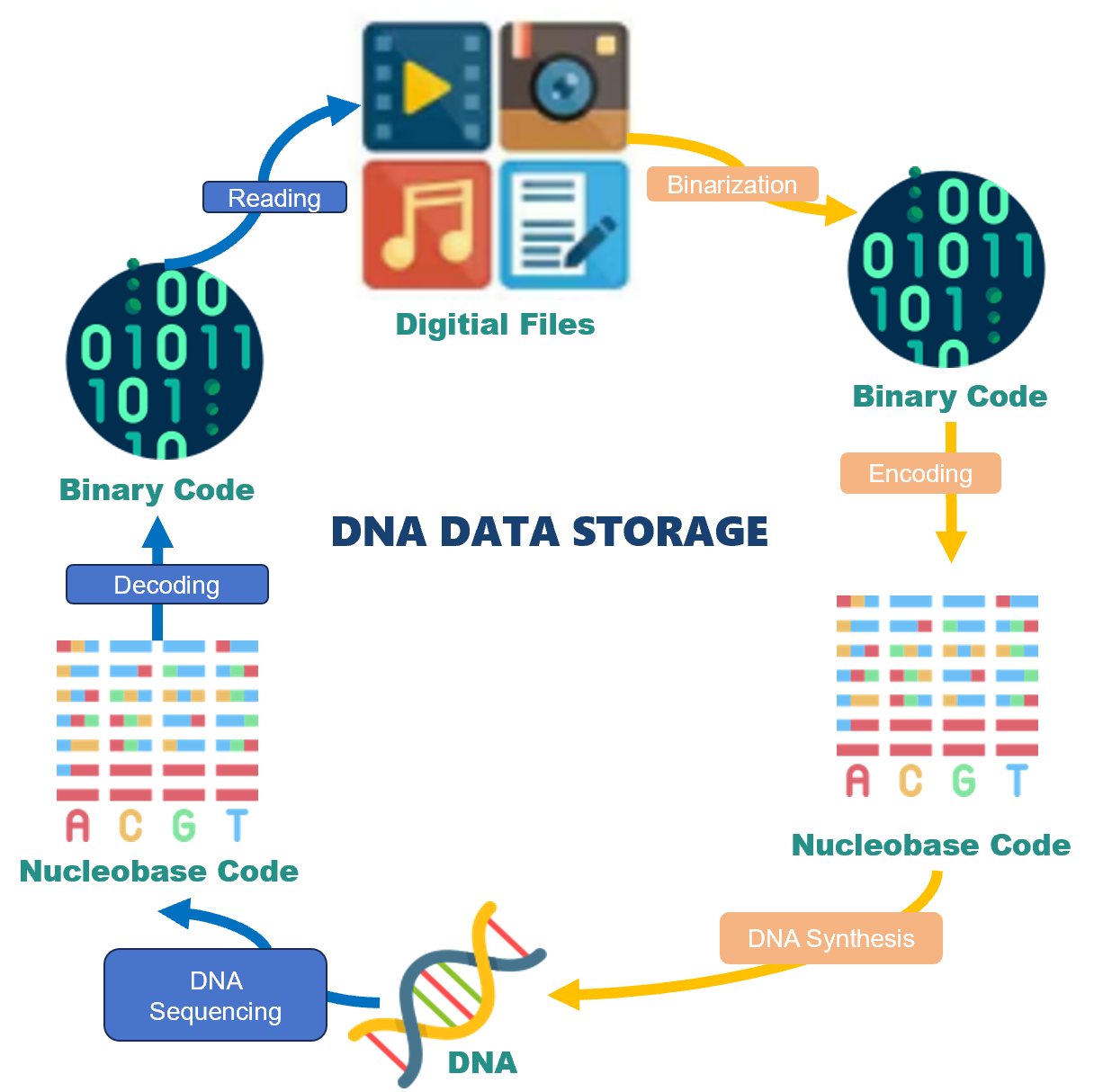Abstract
Compared with traditional storage media, biological data storage has advanced more rapidly in capacity, diversity, and lifespan, and it also enables continuous data retention. The DNA molecule, as Nature's own archival medium, provides unparalleled density, longevity, and passive durability, making it a compelling foundation for the next generation of "cold" and "deeply cold" archives. Since 2019, progress across the stack—coding for insertion–deletion–missing channels, large-scale random access, enzyme writing, nanopore-native retrieval, and chemically robust expansion—has transformed DNA storage from provocative demonstrations into mature technologies with early end-to-end prototypes. From this perspective, we believe biological data management (BDM) is the first area where DNA storage can have practical impact, including raw sequencing archives, microscopic images, clinical omics data, and compliance-driven retention of de-identified records. We synthesize the latest technology levels, highlight what is actually working in today's labs, distinguish challenges from bottlenecks (particularly write costs/latencies and standardization), and propose a 2025–2030 roadmap with specific milestones in coding, writing, access, and media preservation. Finally, this paper proposes guidelines for integrating DNA archives into biological institutes, biobanks, and hospital systems as a supplementary layer to tape/object storage, and outlines a research agenda covering privacy, chain of custody, and sustainability.
Keywords
DNA storage
biological data management
Data Availability Statement
Not applicable.
Funding
This work was supported without any funding.
Conflicts of Interest
The authors declare no conflicts of interest.
Ethical Approval and Consent to Participate
Not applicable.
Cite This Article
APA Style
Chen, R., Li, X., & Cao, B. (2025). The Future of DNA Storage in Revolutionizing Biological Data Management. Journal of Artificial Intelligence in Bioinformatics, 1(2), 51–57. https://doi.org/10.62762/JAIB.2025.924847
Publisher's Note
ICCK stays neutral with regard to jurisdictional claims in published maps and institutional affiliations.
Rights and Permissions

Copyright © 2025 by the Author(s). Published by Institute of Central Computation and Knowledge. This article is an open access article distributed under the terms and conditions of the Creative Commons Attribution (CC BY) license (
https://creativecommons.org/licenses/by/4.0/), which permits use, sharing, adaptation, distribution and reproduction in any medium or format, as long as you give appropriate credit to the original author(s) and the source, provide a link to the Creative Commons licence, and indicate if changes were made.


 Submit Manuscript
Edit a Special Issue
Submit Manuscript
Edit a Special Issue

 Copyright © 2025 by the Author(s). Published by Institute of Central Computation and Knowledge. This article is an open access article distributed under the terms and conditions of the Creative Commons Attribution (CC BY) license (https://creativecommons.org/licenses/by/4.0/), which permits use, sharing, adaptation, distribution and reproduction in any medium or format, as long as you give appropriate credit to the original author(s) and the source, provide a link to the Creative Commons licence, and indicate if changes were made.
Copyright © 2025 by the Author(s). Published by Institute of Central Computation and Knowledge. This article is an open access article distributed under the terms and conditions of the Creative Commons Attribution (CC BY) license (https://creativecommons.org/licenses/by/4.0/), which permits use, sharing, adaptation, distribution and reproduction in any medium or format, as long as you give appropriate credit to the original author(s) and the source, provide a link to the Creative Commons licence, and indicate if changes were made. 